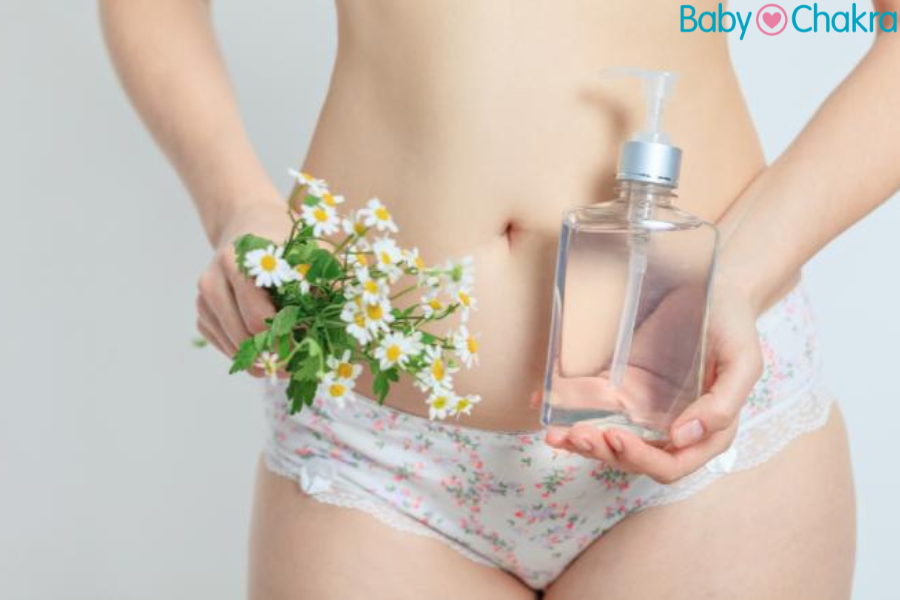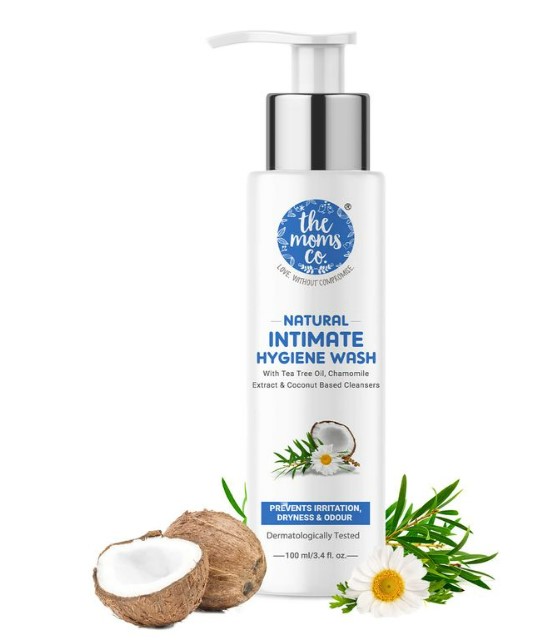
5 Natural Remedies To Maintain Postpartum Vaginal pH
2 Dec 2022 | 3 min Read
Manisha Pradhan
Author | 1053 Articles
Vaginal infections are very common among women and even more during pregnancy and postpartum. During pregnancy, fluctuations in hormones can disrupt the pH balance of the vagina. The first few weeks after giving birth, you may notice a secretion called lochia, that flows out of the uterus through the cervix. This may cause vaginal infection because when the lochia flows out, it increases the vaginal pH which in turn can cause microorganisms to grow more easily.
The pH balance provides a natural barrier against harmful bacteria. The normal vaginal pH is acidic and ranges from 3.8 to 4.5. A pH balance below 4.5 means that certain types of bacteria are multiplying in the vagina and if left untreated a vaginal infection can become dangerous. If your postpartum vaginal pH is too high, you may experience symptoms like redness and rash or a burning sensation.
How To Tell If Your Vaginal pH Is Too Alkaline?
You may feel burning and discomfort while peeing, itchiness around the opening of the vagina, and discomfort during intercourse if your postpartum vaginal pH is too alkaline. Other symptoms include
- Yellow, white or grey vaginal discharge
- Odour that is usually foul or strong.
- Change in texture
Certain natural remedies can help to restore the postpartum vaginal pH.
Natural Remedies to Maintain Postpartum Vaginal pH
1. Natural Intimate Hygiene Wash
Natural extracts of chamomile and calendula soothe itchy, irritated and dry skin. Look for a natural intimate hygiene wash that contains these extracts along with natural lactic acid that creates an acidic environment that prevents harmful bacteria from growing, tea tree oil and panthenol that help fight bacterial infections and stabilise the skin barrier. It also keeps your vaginal area clean and fresh by preventing unpleasant odours.
An intimate hygiene wash is easy to use especially while travelling or whenever you use public toilets.
2. Apple Cider Vinegar
Apple cider vinegar has antifungal and antibacterial properties. You can drink it diluted in water for a balanced postpartum vaginal pH.
3. A Well-Balanced Diet
A diet that’s high in fibre is the best way to keep probiotics at a healthy level. When probiotics are out of balance, it can cause yeast or harmful bacteria to grow causing infections. Fermented foods are rich in probiotics. To balance the probiotics you can add fermented food to your diet such as:\
- Pickles
- Yoghurt
- Buttermilk
- Sourdough bread
- Fermented soups like miso soup
4. Breathable Underwear
Synthetic fabrics are a big no-no even when it comes to clothing, when it comes to undergarments they should be avoided as they don’t allow the skin to breathe and can trap moisture and sweat causing harmful bacteria and yeast to grow. Choose breathable underwear made of cotton especially post the baby’s birth. It allows postpartum wounds to heal better and reduces the risk of infections.
5. Use Protection During Sex
Unprotected sex causes the pH of the vagina to increase as semen has a pH of 7.1 to 8. When you have unprotected sex, it is advisable to use protection like condoms to avoid postpartum vaginal pH.
There are some natural remedies to maintain postpartum pH at home. However, if your symptoms are severe, it’s best to take the doctor’s advice.
Cover image source: freepik
A


Suggestions offered by doctors on BabyChakra are of advisory nature i.e., for educational and informational purposes only. Content posted on, created for, or compiled by BabyChakra is not intended or designed to replace your doctor's independent judgment about any symptom, condition, or the appropriateness or risks of a procedure or treatment for a given person.

